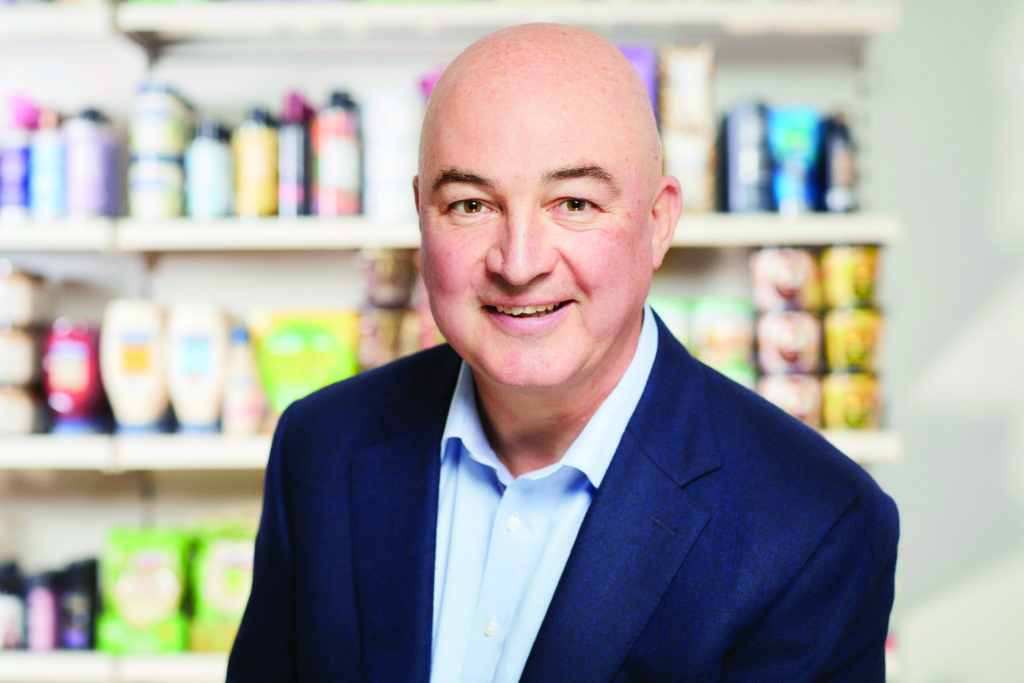3 Mins Read
Multinational food giant Unilever has released a new report that encourages consumers to switch to a plant-based diet. The report is explicit in its findings that plant-based foods offer better sustainability metrics and health benefits than traditional animal food. The news has been met with surprise, given the scale of Unilever’s operation.
Unilever is the biggest parent company to ever release a report pushing for plant-based diet adoption. Parent company to brands including Ben & Jerry’s, Magnum, and Knorr, it produces hundreds of items that still use animal products. But the new research offers optimism of a commercial shift. It lends support to Unilever’s growing plant-based platform as well, currently spearheaded by The Vegetarian Butcher, which was acquired in 2018.

Plant-based for personal health
Unilever has been making moves into sustainable brand management in recent years, motivated by consumer trend data being collected. The recent report, conducted by in-house scientists Nicole Neufingerl and Ans Eilander, looks at how, if at all, plant-based foods can benefit health. Using 141 external studies as data sources, the researchers concluded that a plant-based diet is the most effective for improved health and wellbeing.
Findings were balanced, with vitamin and nutrient intake being compared between vegetarians and meat-eaters. Both groups were found to be deficient in certain areas, but overall, meat-free diets gave access to more of what is needed by the human body. Vegans were shown to have higher levels of fibre, vitamin D, and other essential nutrients. Non-vegans showed increased B12 and vitamin D, amongst others. Plant-based meat manufacturers are already accounting for this, with brands extolling their added supplements.
It was noted that education about effective supplementation would increase the benefits of a plant-based diet. “Our results show the need for additional public health strategies to help consumers transitioning to a more nutritionally balanced and sustainable diet by education on diverse nutrient-dense plant foods, food fortification and possibly supplementation,” the report states.
Plant-based for the planet
Looking outside of human health, the Unilever report claims that a commercial move towards plant-based food production would benefit the planet. If companies of Unilever’s size are willing to decrease reliance on animal-sourced ingredients, there is potential to slow the climate crisis, before it gets worse.

The future of foods at Unilever
The company is moving in that direction, with its acquisition of The Vegetarian Butcher and increased vegan options of existing brands. Ben & Jerry’s and Magnum are primary examples of this in action. Prioritising meat-free products will now be more important than ever, as Unilever has set a target of $1.1 billion in annual vegan product sales, by 2027. It plans to meet the goal by evolving more household names to include plant-based items.
“As you’ll know there is a secular trend toward us all eating a little more of a plant-based diet and we see all our vegetarian and vegan offerings growing very quickly,” Alan Jope, Unilever CEO said in a statement last year. “The first thing we’re concerned to do is to make sure that our big brands like Knorr and Hellmann’s have got attractive plant-based offerings. So that’s really the main course.”
A big picture shift
Unilever is not alone in revealing such findings. New research published in the PLOS Medicine journal claims that a plant-based diet can add 10 years to life expectancy. Scientists in Norway conducted the study and found that optimal eating, which is heavy in legumes, pulses, nuts and fresh produce, adds years to life at every stage. Earlier adoption was shown to generate greater gains.
Lead photo by Maarten van den Heuvel from Pexels.





